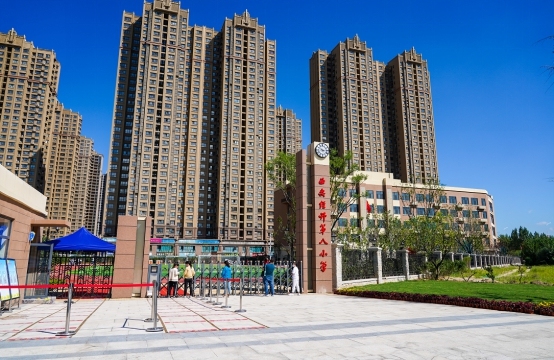Xi'an, capital of Northwest China's Shaanxi province, will increase financial investment, expand high-quality education resources, and improve the public education service system to promote education equity and improve education quality.
This is according to the implementation plan to coordinate the reform and development of urban and rural compulsory education issued by the municipal government on July 29.
In terms of project construction and capital investment, Xi'an will give priority to supporting the construction of schools in rural areas where compulsory education is weak, schools in town centers, and urban schools where there is a large influx of rural school-age children.

Xi'an Jingkai No 8 Primary School is established in 2020 as a fully public school in the Xi'an Economic and Technological Development Zone. [Photo/xa.gov.cn]
The city will also continuously improve conditions at village primary schools and teaching sites, coordinate the use of existing resources, and avoid building needlessly large or luxurious schools.
In addition, it will increase efforts to build new schools and expand existing schools. It will ensure that before the start of the school semester in autumn 2022, 256 newly-built, renovated and expanded compulsory education schools will have begun operating, with 306,800 new enrollment spots.
The city will also strengthen the construction of township boarding schools and small-scale rural schools to ensure that classrooms, tables, chairs, books, laboratory equipment, information equipment, sports fields, and other facilities in compulsory education schools meet basic teaching needs.

Students attend class at a primary school in Xi'an. [Photo/xa.gov.cn]
To recruit more teachers for compulsory education, Xi'an will organize various recruitment activities with open recruitment as the main channel, establish an orderly flow mechanism for teachers in accordance with laws and regulations, and encourage teachers to teach in rural schools.
In addition, the construction of big data comprehensive service management platforms will be accelerated to promote the application of education big data in educational development planning, school layout, and examination and enrollment system reforms.